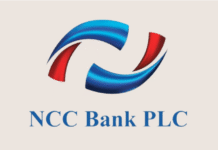
The banking sector witnessed a staggering increase of a record Tk 36,662 crore in non-performing loans in just three months ending in March, due mainly to a lack of disciplinary measures against defaulters.
According to Bangladesh Bank data released on Thursday, defaulted loans surged to a historical high of Tk 1,82,295 crore at the end of March, from Tk 1,45,633 crore in December 2023, Tk 1,20,656 crore in December 2022, and Tk 1,03,273 crore in December 2021.
Although the NPLs reached a record high of Tk 1,56,039 crore in June 2023, they slightly declined in the following two quarters before a significant spike in March.
Experts expressed deep concerns about the sharp rise in default loans, warning of severe repercussions for both the banking sector and the economy.
They argued that many of these default loans were obtained willfully, leveraging the borrowers’ political, financial, and lobbying influence.
Criticism has been directed at the Bangladesh Bank for its failure to control default loans and for not fulfilling its regulatory role in addressing the sector’s widespread irregularities.
As of March 2024, the total loan disbursed was Tk 16,40,855 crore, with 11.10 per cent classified as NPLs.
In December 2023, NPLs accounted for 9 per cent of the total loans.
Ahsan H. Mansur, Executive Director of the Policy Research Institute of Bangladesh, attributed the substantial increase in default loans to the government’s inaction.
He feared that the trend would persist as the Bangladesh Bank did not take significant steps to check the growth of non-performing loans.
Noting a lack of visible initiatives in this regard, Mansur emphasised the urgent need for the government to prioritise banking sector reform in light of the current economic crisis.
He insisted that if the default loans were accurately calculated, they would be of massive proportions, with a significant portion being laundered abroad.
He also noted that irregularities and corruption in the banking sector have adversely affected the country’s overall macroeconomic stability.
By the end of March, the total amount of defaulted loans in private commercial banks had risen to Tk 88,927 crore from Tk 70,981 crore in December, meaning 7.28 per cent of the total Tk 12,21,116 crore loans are now classified as bad loans.
In March, the volume of such bad loans in state-owned commercial banks increased to Tk 84,327 crore from Tk 65,781 crore in December.
These crisis-hit banks disbursed a total of Tk 3,12,266 crore in loans, of which 27 per cent became defaulted, reflecting their precarious state.
Defaulted loans in foreign commercial banks and specialised banks soared to Tk 3,457 crore and Tk 5,550 crore, respectively, by March.
In 2020 and 2021, borrowers benefited from relaxed repayment terms, including a one-year moratorium, due to the Covid pandemic.
Despite banks being barred from downgrading loans against the repayment of only 15 per cent of dues, the volume of defaulted loans remained high at the end of December 2020.
Experts attribute the increase in defaulted loans to the relaxation of repayment terms during the Covid pandemic, coupled with the country’s deteriorating economic situation.
Bankers predict that the volume of defaulted loans will further increase due to the current regulatory approach and borrowers’ tendency to avoid repayments.
Financial analysts suggest that if written-off loans, rescheduled loans, and loans remaining unrecovered due to court proceedings are considered, the volume of default loans will be much higher.
The significant amount of defaulted loans has affected banks’ liquidity and profitability, as most of their income is derived from interest on performing loans.
New Age









